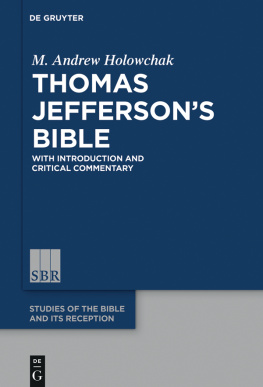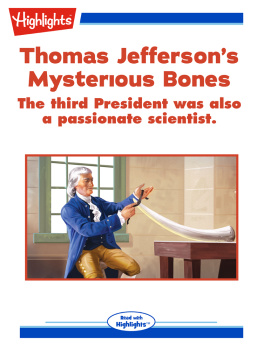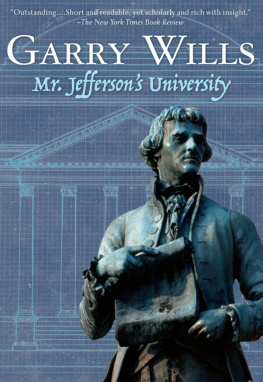John A. Ragosta - The Founding of Thomas Jeffersons University
Here you can read online John A. Ragosta - The Founding of Thomas Jeffersons University full text of the book (entire story) in english for free. Download pdf and epub, get meaning, cover and reviews about this ebook. year: 2019, publisher: University of Virginia Press, genre: Politics. Description of the work, (preface) as well as reviews are available. Best literature library LitArk.com created for fans of good reading and offers a wide selection of genres:
Romance novel
Science fiction
Adventure
Detective
Science
History
Home and family
Prose
Art
Politics
Computer
Non-fiction
Religion
Business
Children
Humor
Choose a favorite category and find really read worthwhile books. Enjoy immersion in the world of imagination, feel the emotions of the characters or learn something new for yourself, make an fascinating discovery.

- Book:The Founding of Thomas Jeffersons University
- Author:
- Publisher:University of Virginia Press
- Genre:
- Year:2019
- Rating:4 / 5
- Favourites:Add to favourites
- Your mark:
- 80
- 1
- 2
- 3
- 4
- 5
The Founding of Thomas Jeffersons University: summary, description and annotation
We offer to read an annotation, description, summary or preface (depends on what the author of the book "The Founding of Thomas Jeffersons University" wrote himself). If you haven't found the necessary information about the book — write in the comments, we will try to find it.
The Founding of Thomas Jeffersons University — read online for free the complete book (whole text) full work
Below is the text of the book, divided by pages. System saving the place of the last page read, allows you to conveniently read the book "The Founding of Thomas Jeffersons University" online for free, without having to search again every time where you left off. Put a bookmark, and you can go to the page where you finished reading at any time.
Font size:
Interval:
Bookmark:

and Andrew OShaughnessy,
Editors
THOMAS JEFFERSONS UNIVERSITY
Adams Family | L. H. Butterfield et al., eds., Adams Family Correspondence (Cambridge, MA: Belknap Press of Harvard University Press, 13 vols. to date, 1963). |
APDE | T he Adams Papers Digital Edition , ed. Sara Martin (Charlottesville: University of Virginia Press, Rotunda, 20082018). http://rotunda.upress.virginia.edu/founders/default.xqy?keys=ADMS. |
Founders Online | Founders Online , National Archives, https://www.founders.archives.gov/. |
Notes | Thomas Jefferson, Notes on the State of Virginia , ed. William Peden (Chapel Hill: University of North Carolina Press for the Omohundro Institute of Early American History and Culture at Williamsburg, 1982). |
PJM-SSS | Robert J. Brugger et al., eds., The Papers of James MadisonSecretary of State Series (Charlottesville: University of Virginia Press, 11 vols. to date, 1986). |
PTJ | Julian P. Boyd et al., eds., The Papers of Thomas Jefferson (Princeton, NJ: Princeton University Press, 43 vols. to date, 1950). |
PTJRS | J. Jefferson Looney et al., eds., The Papers of Thomas Jefferson, Retirement Series (Princeton, NJ: Princeton University Press, 15 vols. to date, 2004) |
VMHB | Virginia Magazine of History and Biography |
WMQ | William and Mary Quarterly |
Font size:
Interval:
Bookmark:
Similar books «The Founding of Thomas Jeffersons University»
Look at similar books to The Founding of Thomas Jeffersons University. We have selected literature similar in name and meaning in the hope of providing readers with more options to find new, interesting, not yet read works.
Discussion, reviews of the book The Founding of Thomas Jeffersons University and just readers' own opinions. Leave your comments, write what you think about the work, its meaning or the main characters. Specify what exactly you liked and what you didn't like, and why you think so.



